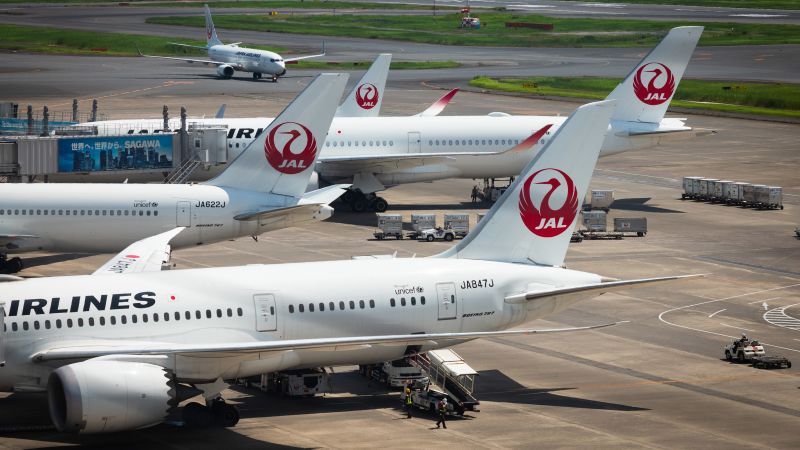
Typhoon Ampil Strikes: Japan Grounds Flights and Halts High-Speed Trains!
The ominous cloud of Typhoon Ampil hovers over Japan, leading to a jolt in the transportation sector of the country. Among the disruptions caused by the impending typhoon, flight cancellations and suspension of bullet trains encapsulate the gravity of the situation.
The intensity of Typhoon Ampil is said to be formidable, something that led Japan’s transportation department to adopt a proactive approach to the situation. With the storm projected to make landfall on the country’s main islands, flights have been canceled and bullet trains offer no service until further notice. This cautious act was taken to ensure the safety and wellbeing of not just the travelers but also the infrastructure of the massive transportation network of Japan.
According to Japan’s Meteorological Agency, Typhoon Ampil has the potential to evoke widespread chaos through torrential rain, violent winds, and raging tide – a trinity that poses a grave threat to Japan’s transport operations. Forecasters predict that the typhoon could possibly bear down on areas where transportation is a crucial lifeline for millions of Japanese citizens. Consequently, the decision was made to halt operations of bullet trains and cancel flights preemptively.
The typically efficient and punctual Shinkansen, or bullet trains, which are the pride of Japan, were suspended due to the typhoon. These trains, often lauded as a testament to Japanese infrastructure and technology, are known for their sparkling on-time records and efficiency. However, with wind speeds predicted to reach up to 140 kilometers (87 miles) per hour, running them would be both unfeasible — due to the potential for power cuts and structural damage — and perilous.
In addition, an array of flights were canceled in the wake of Typhoon Ampil’s approach. Airlines took heed of the typhoon forecasts and acted with professional responsibility by cancelling flights that were scheduled to or from areas predicted to be severally impacted. The decision not only resonates with preserving public safety but also of the crews and aircraft.
Interestingly, amidst these widespread disruptions, some sectors have shown adaptability. The local businesses, along with the public services, are making efforts to offer alternative services, in a bid to mitigate the impact of the disrupted transportation.
Despite the myriad of complications brought on by Typhoon Ampil’s impending arrival, the steps taken by Japan’s transportation sector are reflective of the country’s resilient preparation and dedicated craftsmanship to ensure safety and continuity. Although this situation is far from the typical order and efficiency Japan is renowned for, it emphasizes the flexible and anticipatory nature of the country’s preparedness for disaster mitigation.
Typhoon Ampil’s impending approach sees Japan’s busiest transportation avenues come to a standstill. Bullet trains sit idle on their tracks, and flight services grounded, painting a surreal picture of suspended animation over this bustling country. Despite the disruptions, it remains a testimony to Japan’s regard for safety and readiness to adapt in the face of natural disasters. The coming days will indeed attest to Japan’s resilience and recovery strategies once Typhoon Ampil makes its anticipated landfall.
